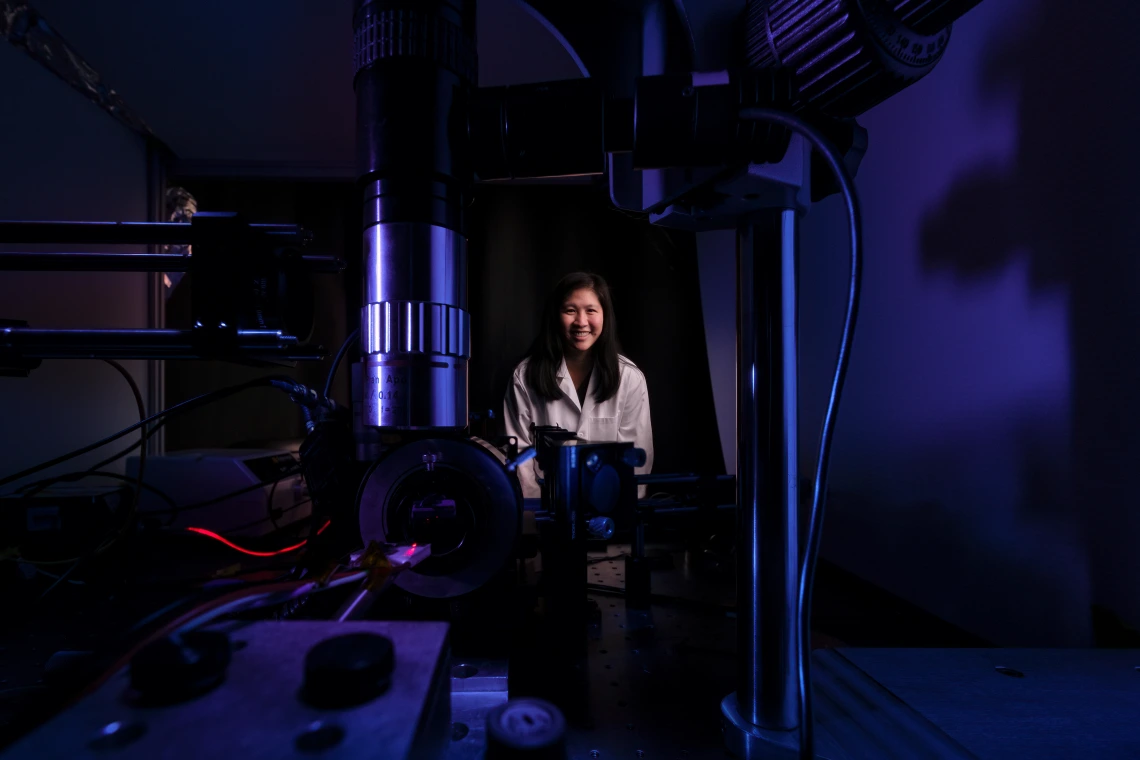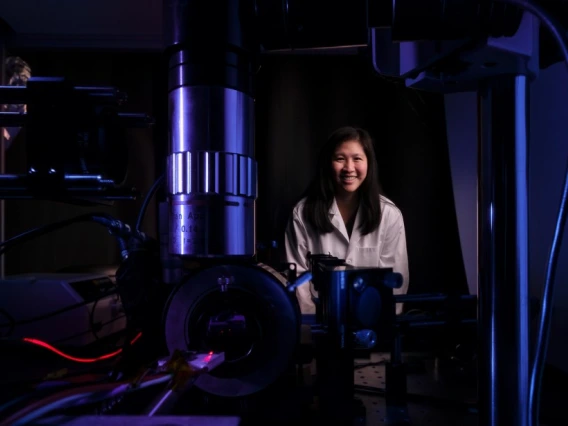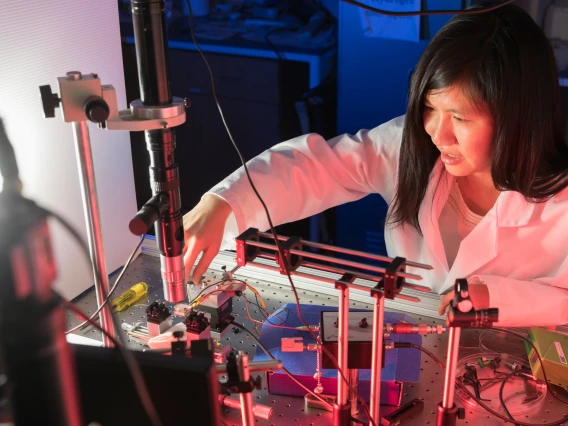Biomedical associate professor earns international recognition
Judith Su, a 2025 fellow of SPIE, is nominated by the society’s past president.

Judith Su's work detecting miniscule amounts of substances has wide applications for improving human health.
Judith Su has made groundbreaking discoveries in biological sensing since joining the University of Arizona faculty in 2017. Su, associate professor of biomedical engineering, has now been named a 2025 fellow of the International Society for Optics and Photonics (SPIE), in acknowledgement of her inventions, research and service to the field.
Su, also an associate professor of optical sciences and associate professor at the university’s BIO5 Institute, leads the Little Sensor Lab. She has garnered millions of dollars in funding for projects and technologies that increase researchers’ capacity to detect trace quantities of substances. Applications include health diagnostics, drug discovery and a device to protect U.S. troops from chemical weapons.
Jennifer Barton, BIO5 director and Su’s mentor, nominated her for the honor. Barton is SPIE’s immediate past president and the Thomas R. Brown Distinguished Chair in the College of Engineering, where she is a professor of BME, electrical and computer engineering, and biosystems engineering. Barton has long been impressed with Su’s commitment to scholarship and teaching.
"Judy has contributed to the field for over 17 years and has continuously exceeded expectations for productivity and service during her time at the University of Arizona," said Barton.
Su said she appreciates Barton’s support, as well as that of her lab members and sponsors, adding that this is a wonderful time to work in optical engineering.
"It is a fantastic field with unlimited opportunities ahead," Su said.
Better sensing for health
Su is well-known for inventing FLOWER (frequency locked optical whispering evanescent resonator), which employs optical technology to sense biological substances. In her recent research, Su and her collaborators took sensing capability to the zeptomolar level, an almost inconceivably small quantity.
FLOWER has been heralded as an invention that will speed drug research in particular, as it can detect biochemicals without researchers having to label a target compound with a fluorescent or radioactive tag to make it more prominent in the testing process, a common necessity in sensing technology.
"In certain applications, it can be really difficult or impossible to put these tags on, and they can increase cost," said Su. "For things like small molecule drug screening, sometimes the tags can even interfere with the results."
Su’s advance "offers a quantum leap on peak sensitivity of label-free biosensing" to improve human health, said Mario Romero-Ortega, BME department head.
Steered by extraordinary vision
Su holds eight patents for her inventions and has won a number of prestigious awards and recognitions in addition to being an SPIE fellow. Last year, Su was named a Rising Star by the American Society of Mechanical Engineering; she was listed in the Photonics 100 by Electro Optics; and she was named a Craig M. Berge Faculty Fellow by the College of Engineering.
In 2023, she won a National Science Foundation CAREER award and two U of A honors – an Arizona Champion award and the Early Career Innovation and Entrepreneurship Award. The previous year, Su was named an inaugural Woman of Impact by the university and received the College of Engineering Dean’s Award for Outstanding Early Career Faculty.
Previously, Su received an outstanding investigator award from the National Institutes of Health, which she used to enhance the FLOWER device's functionality. She also won a young investigator award from the American Society for Laser Medicine and Surgery. Su has served as a member of the Board of Scientific Counselors for the National Institute for Occupational Safety and Health (NIOSH). In addition, she is a senior member of the National Academy of Inventors and Optica.
"Judy is designing novel optical materials, laser control systems, and data processing techniques to create the most sensitive label-free sensor available," said Barton. "What is extraordinary is not just her technology, but Judy’s vision for a broad variety of applications."
Su joined the university from Caltech, from which she earned a doctoral degree in biochemistry and molecular biophysics. She completed bachelor's and master’s degrees in mechanical engineering at MIT.



